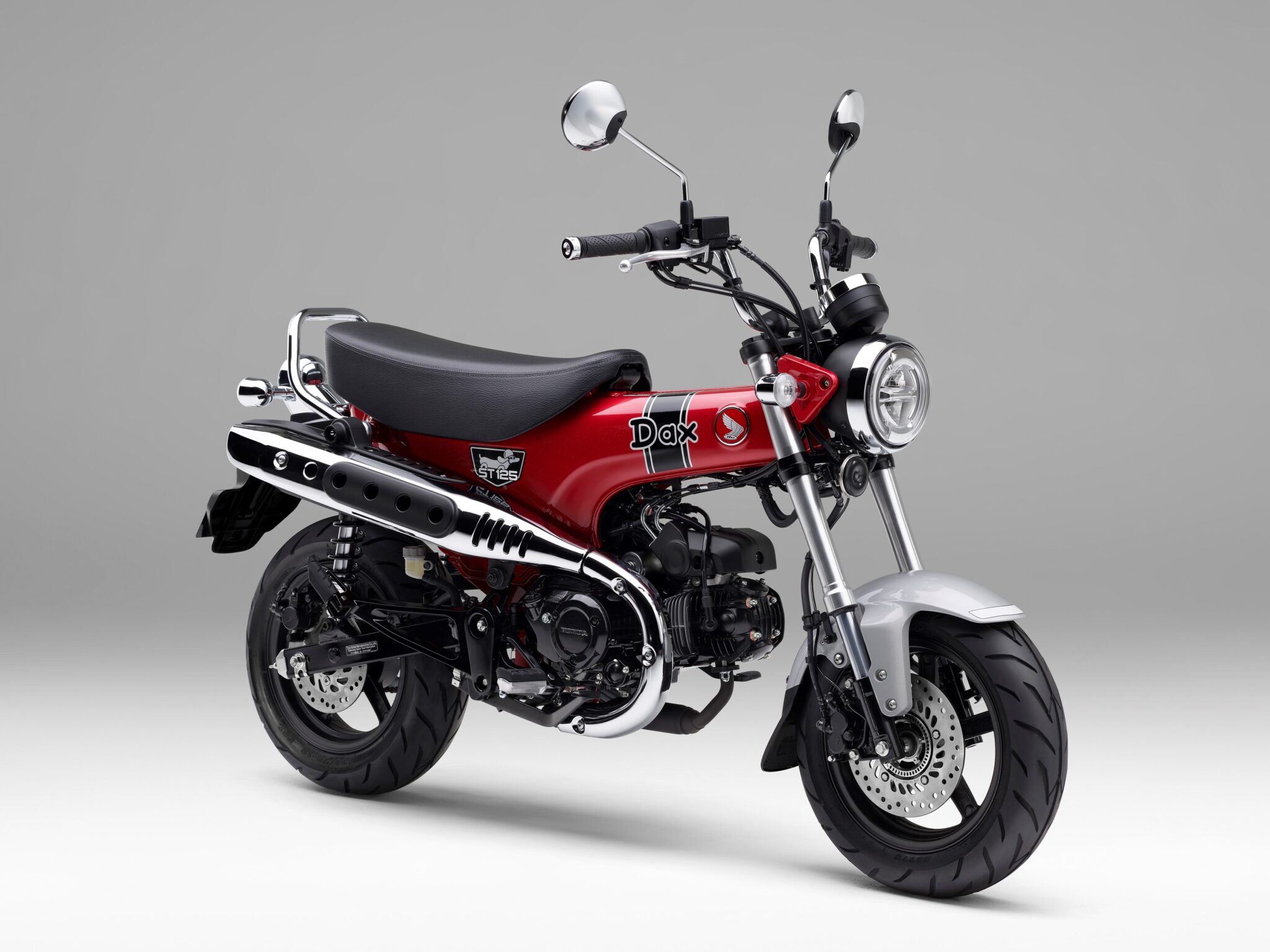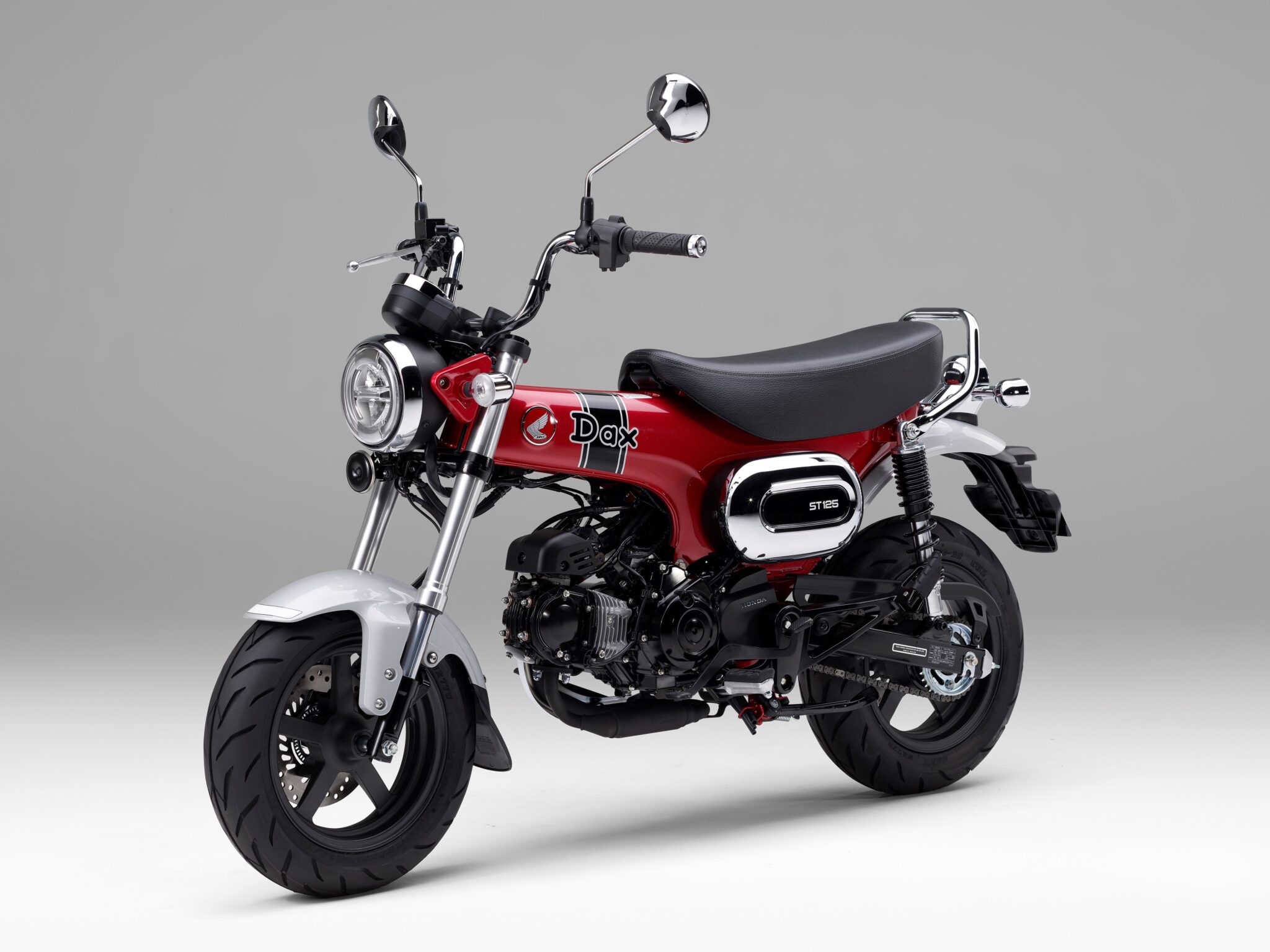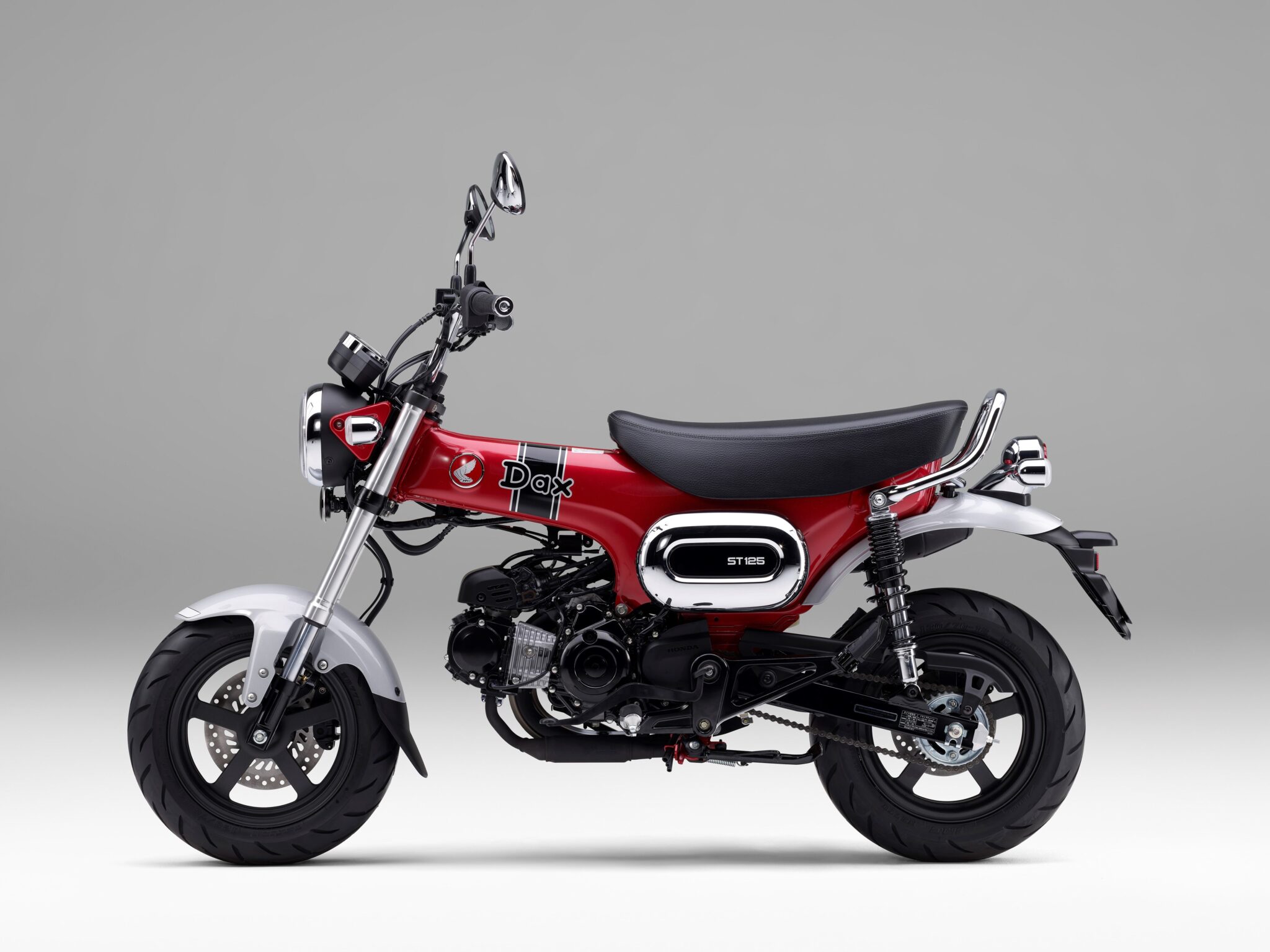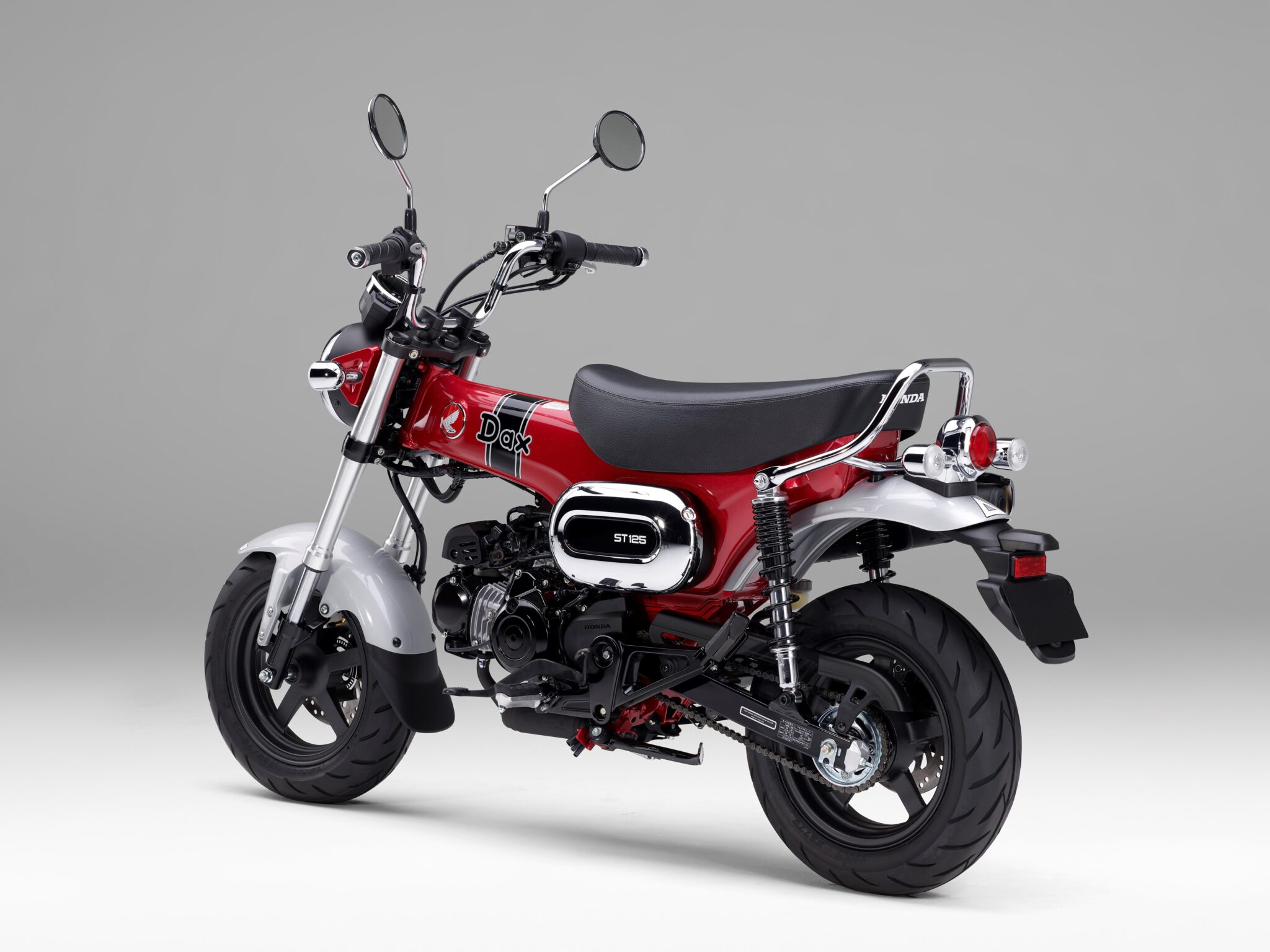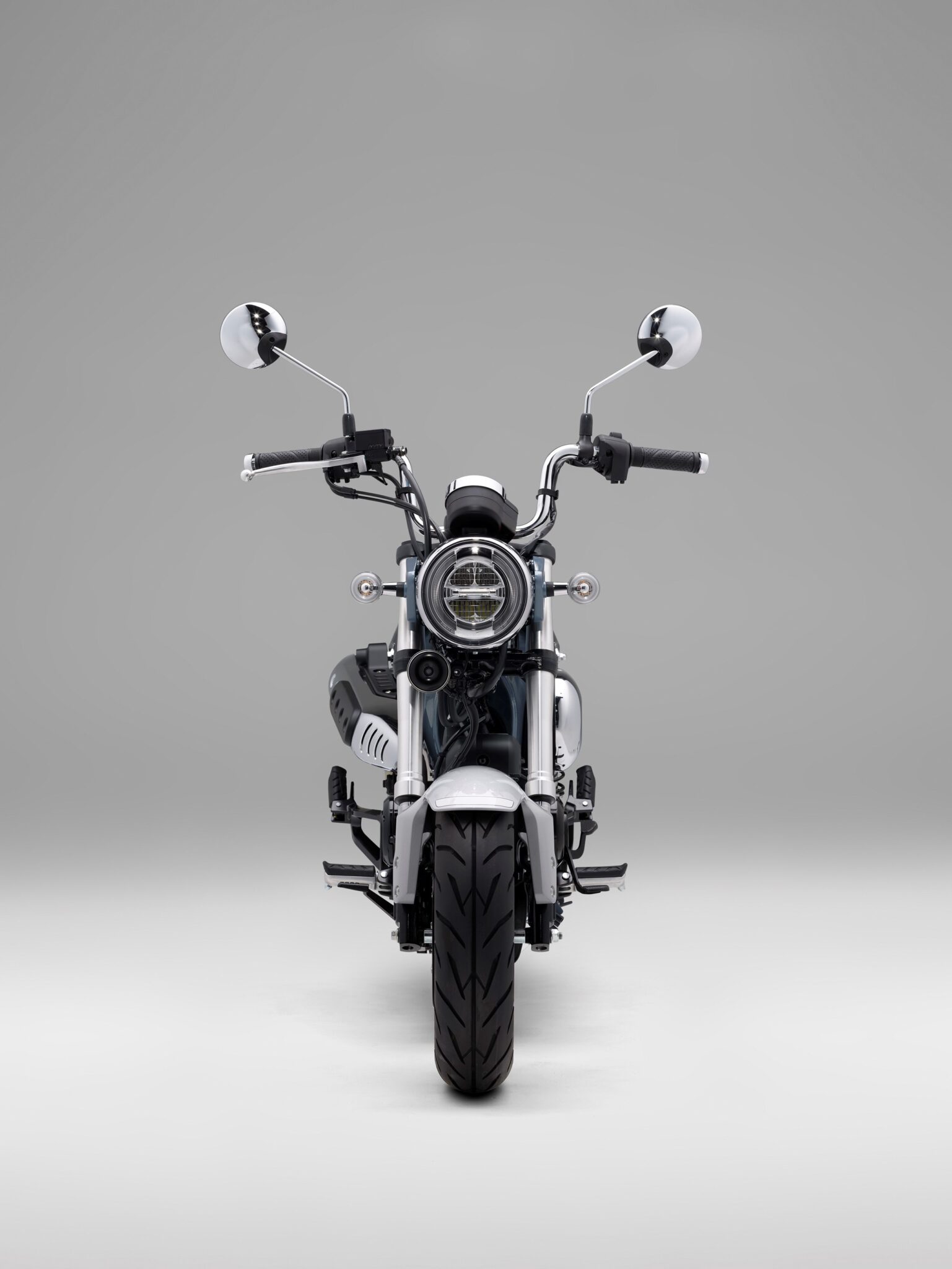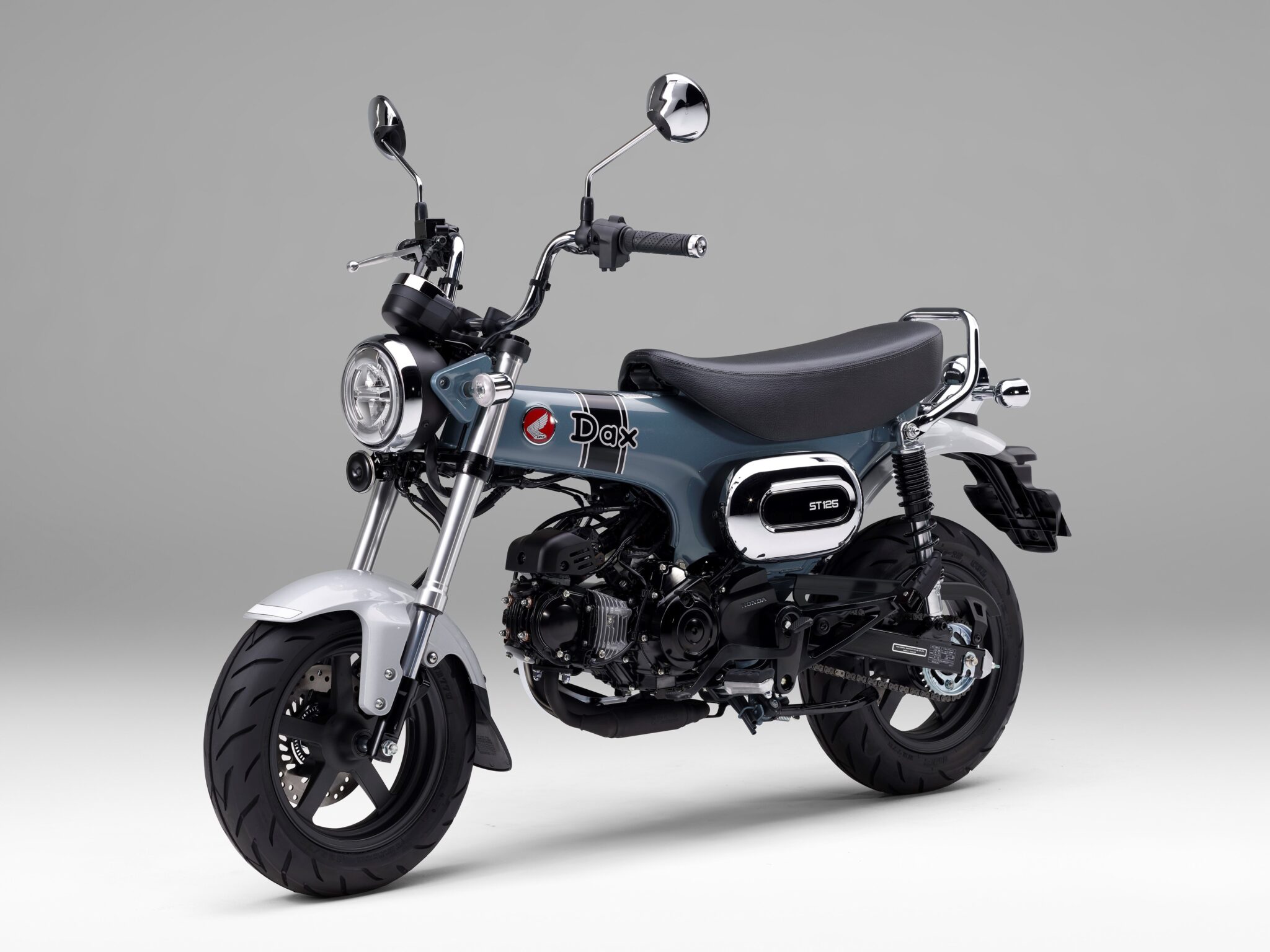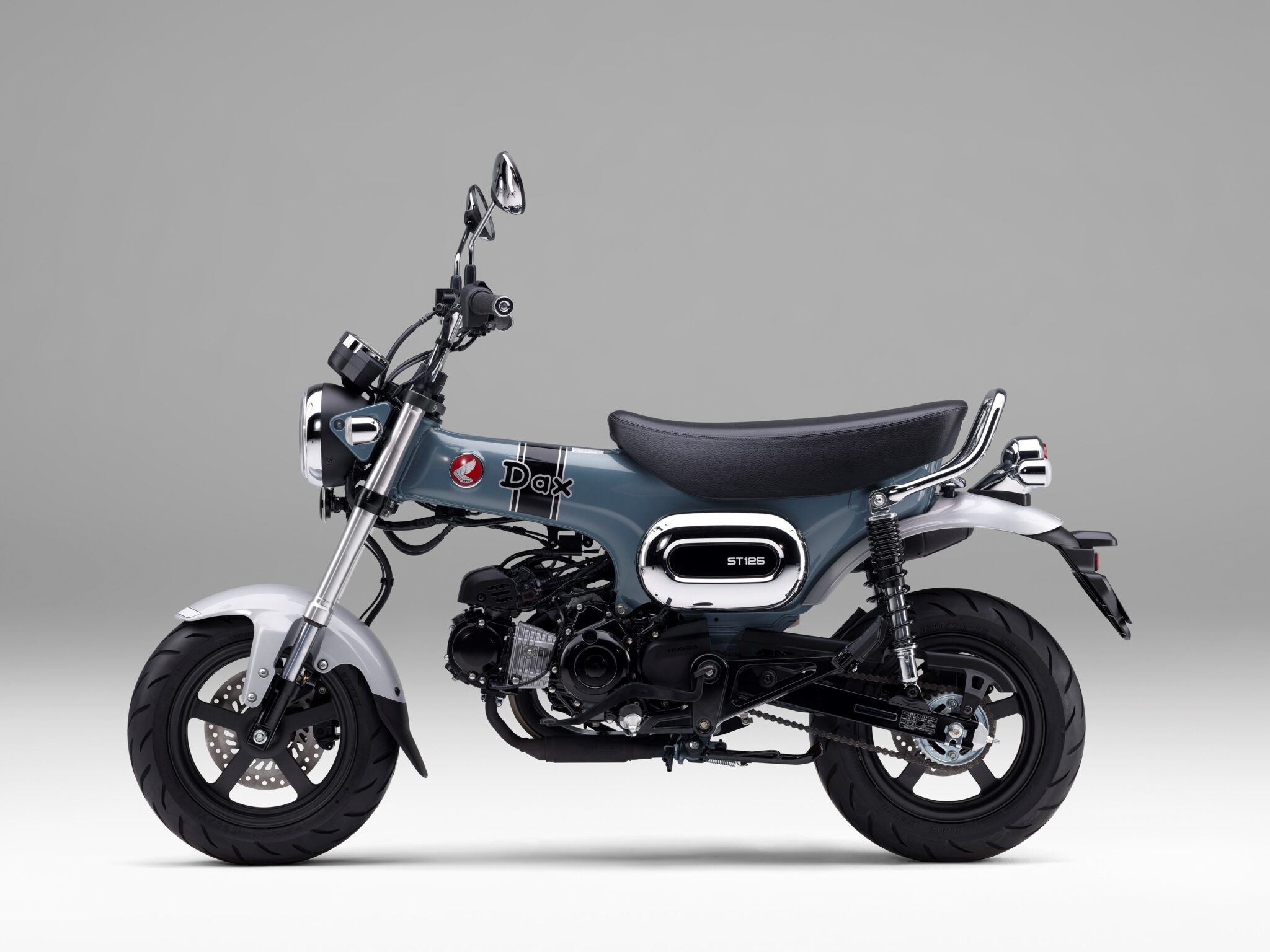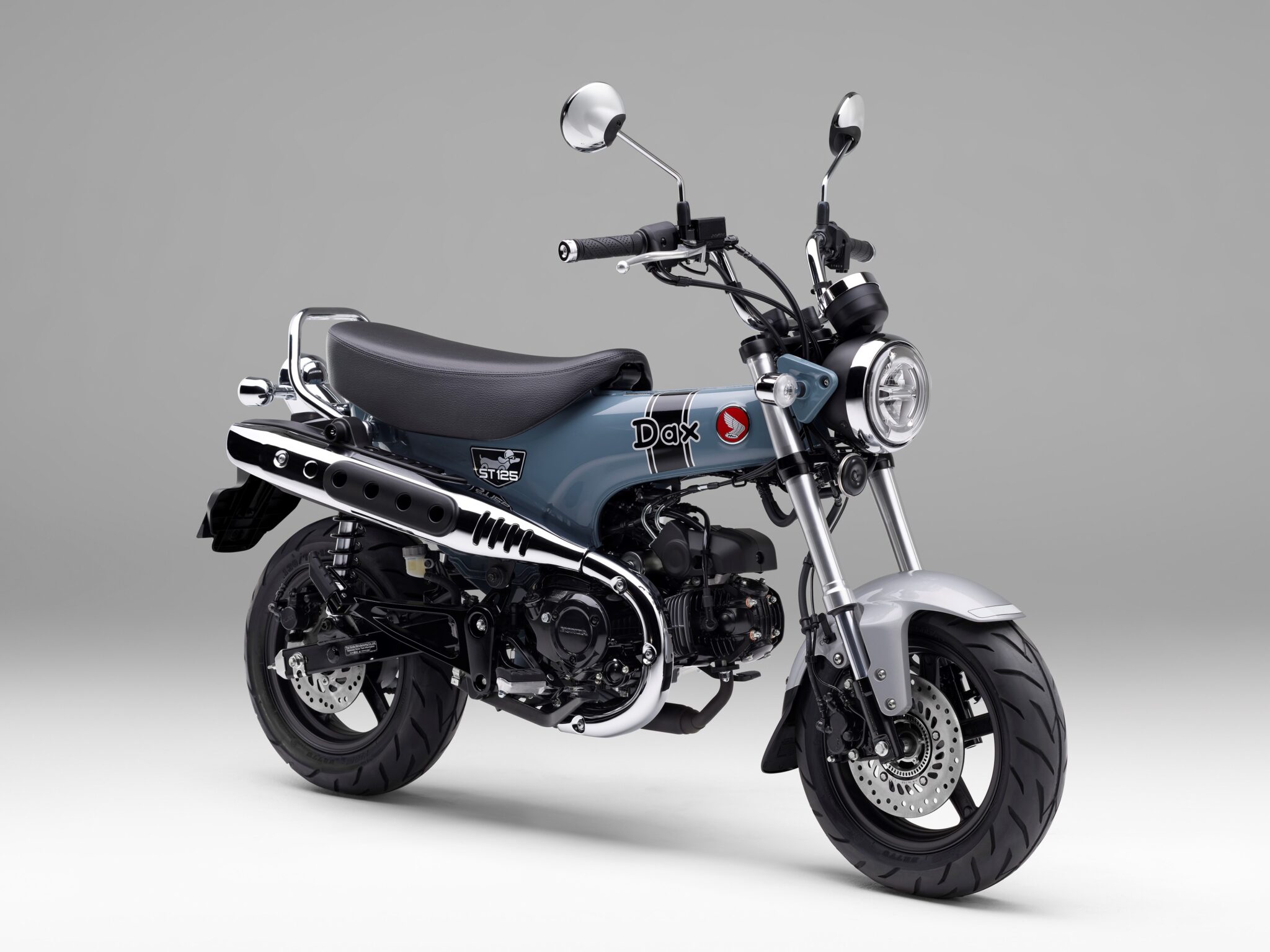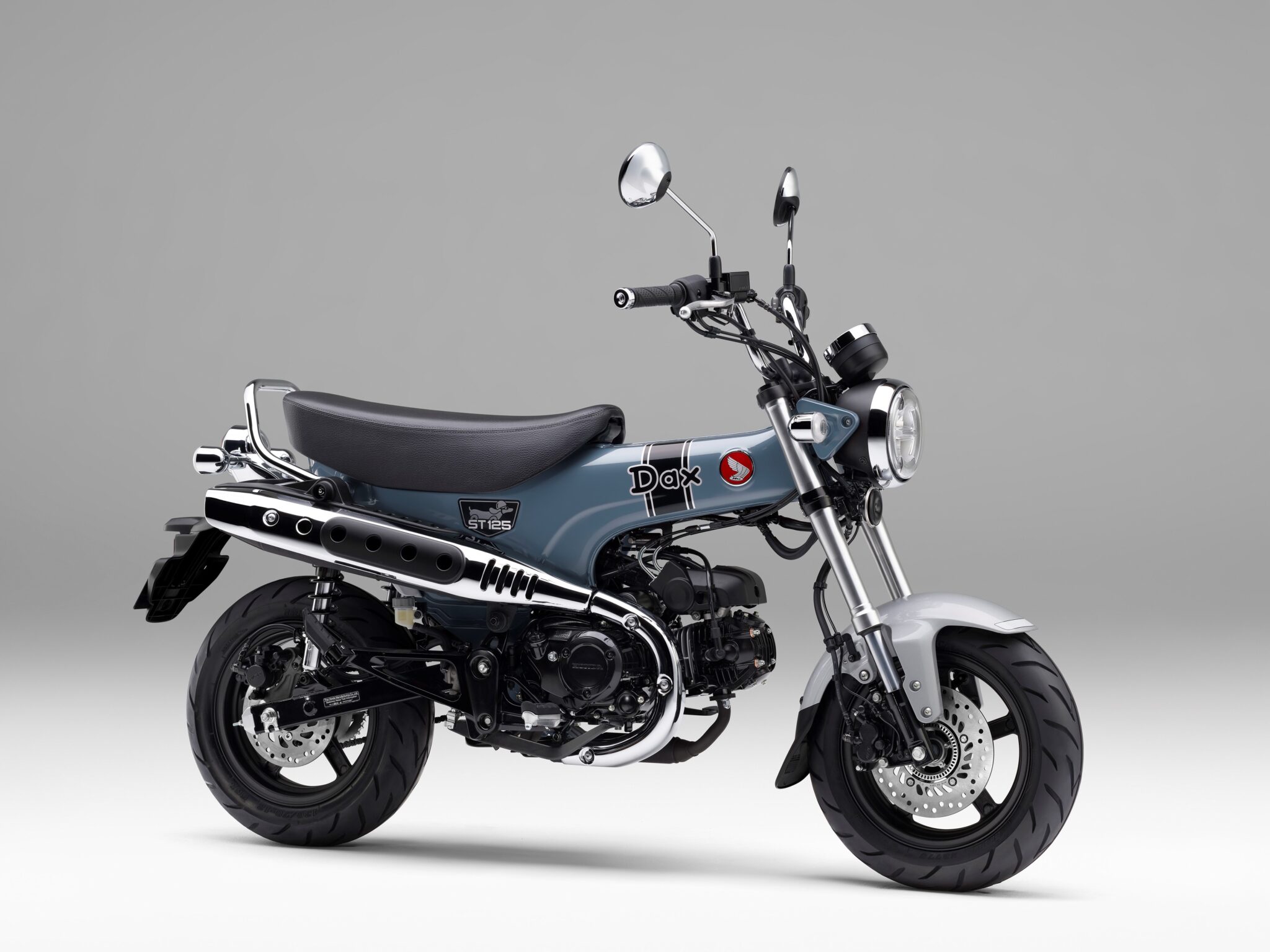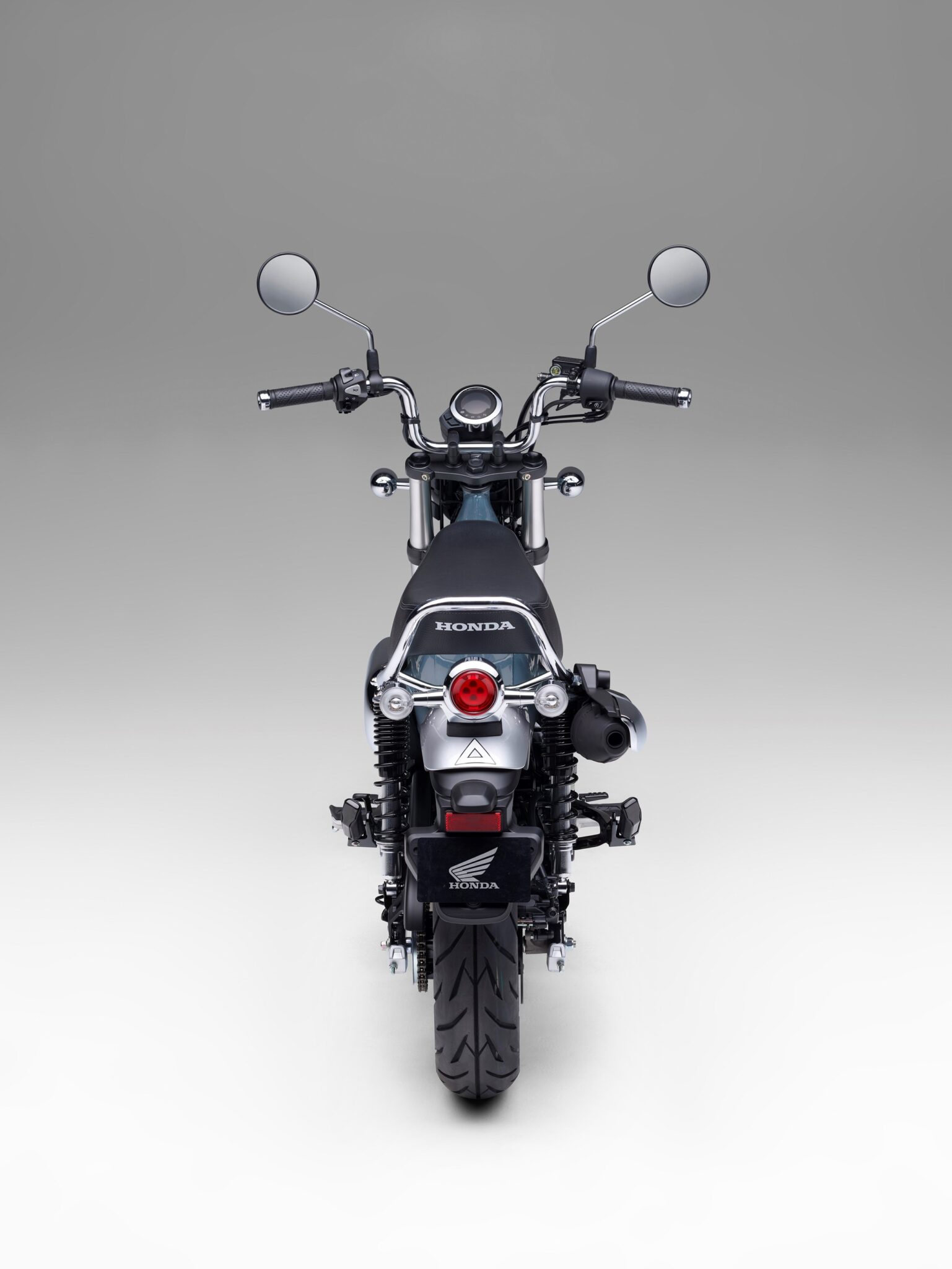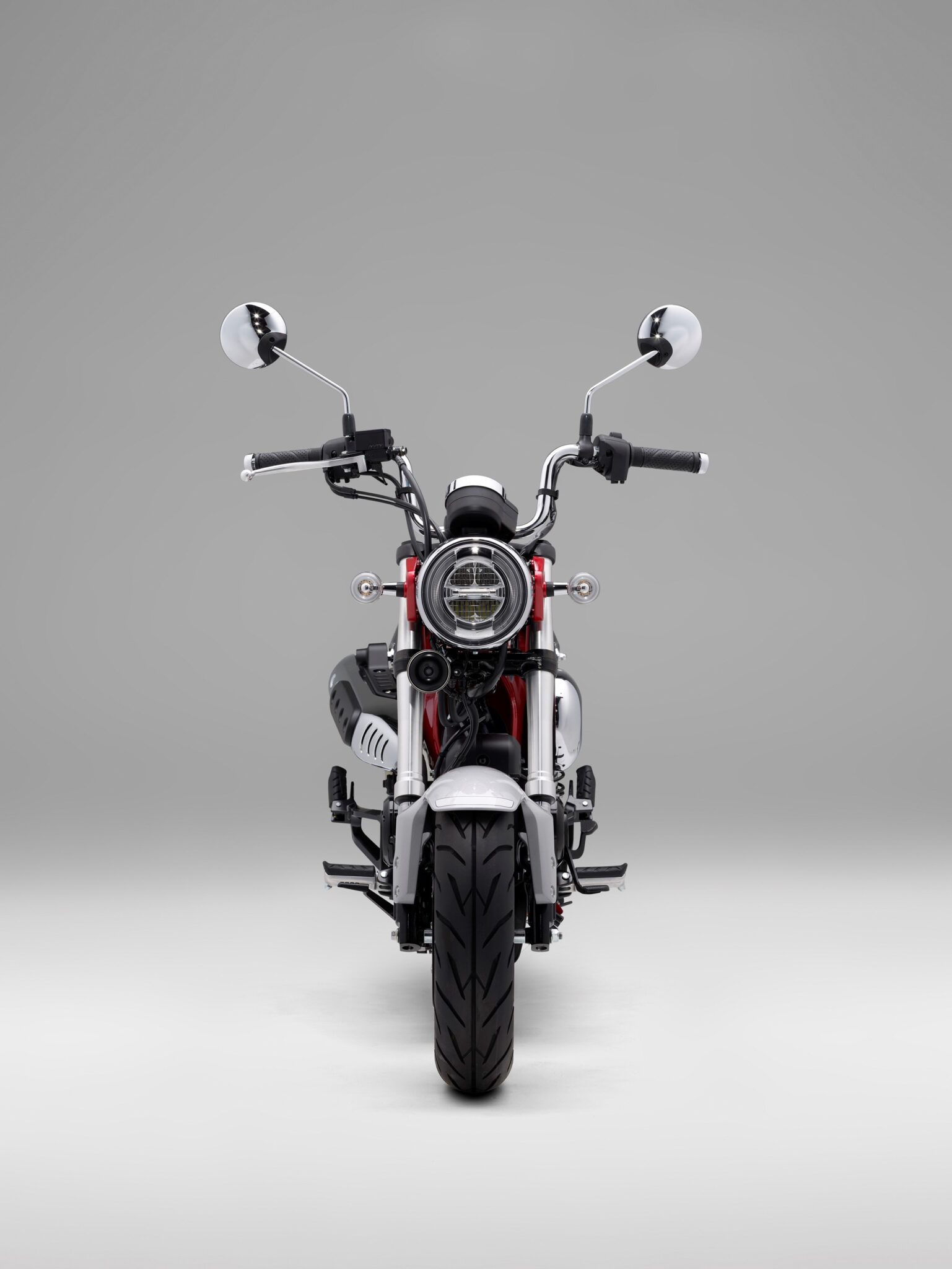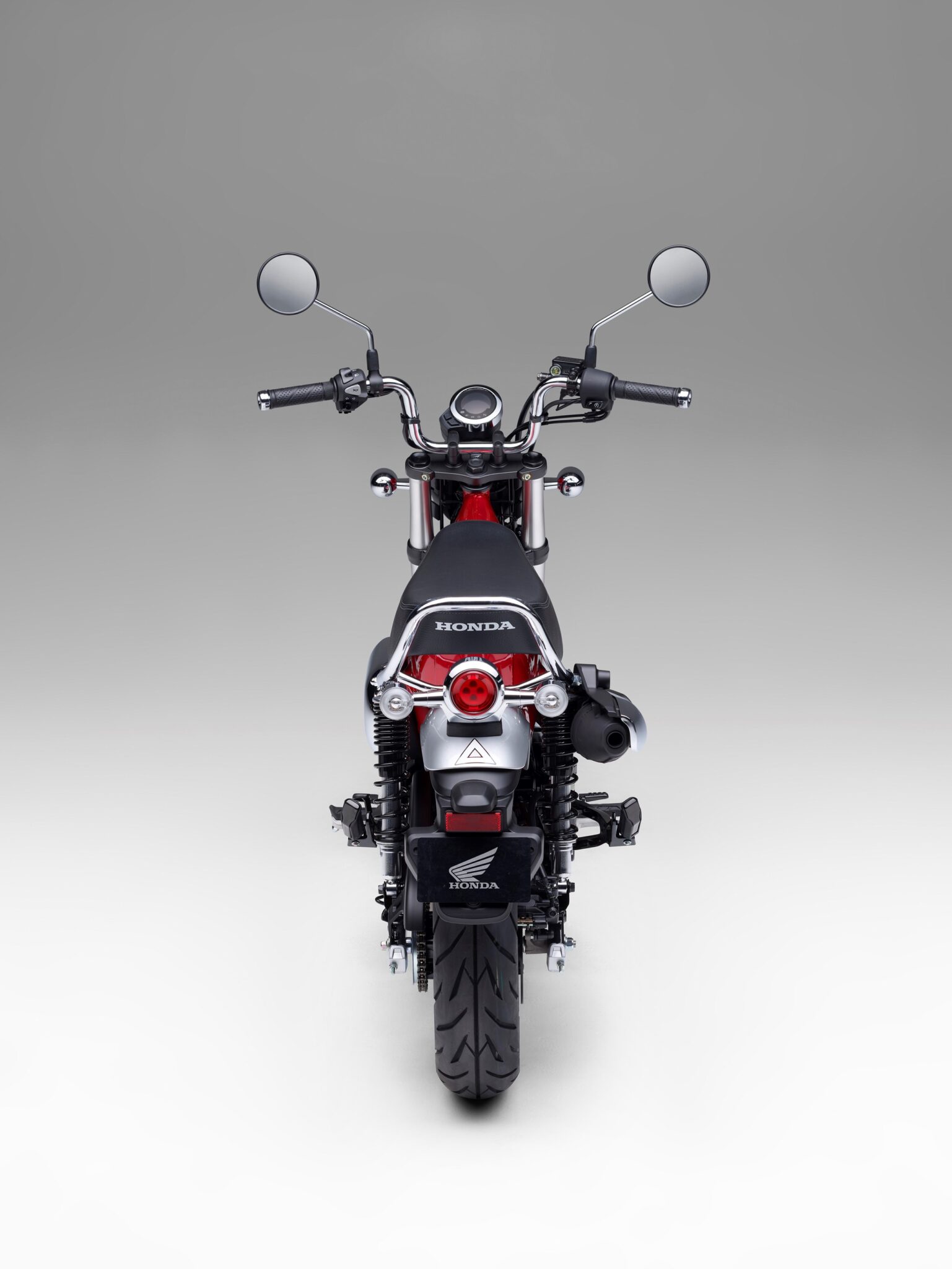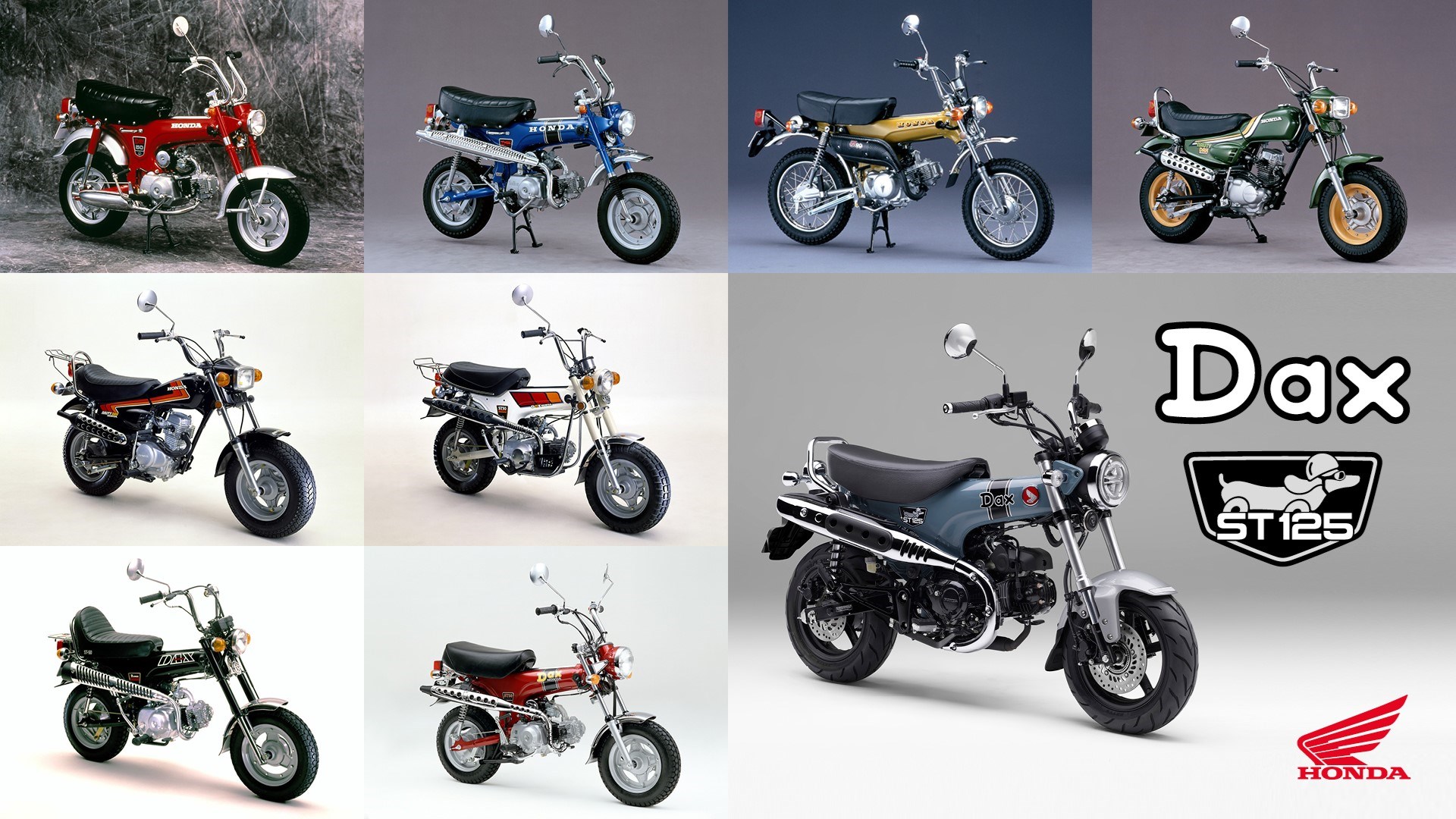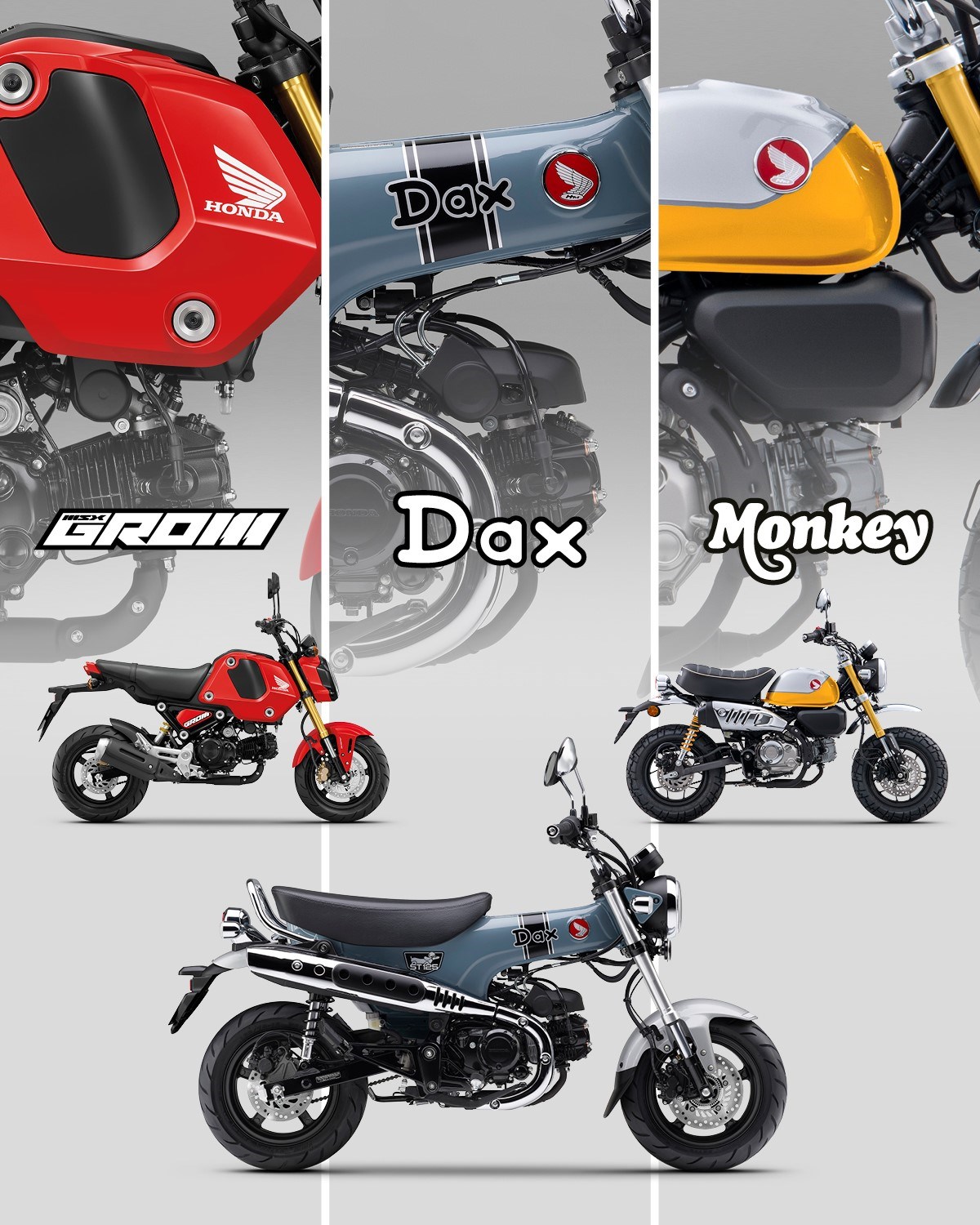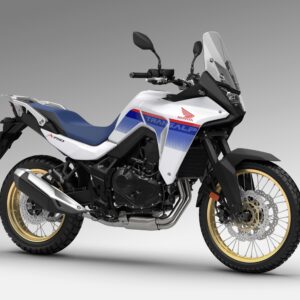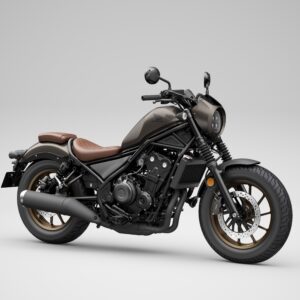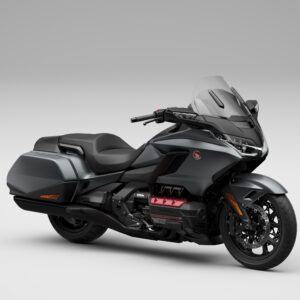Description
Fill in the below for a call-back
Model Overview
As it should, the Dax keeps it simple. A steel frame provides strength and houses the fuel tank while 31mm USD forks, twin rear shocks and 12-inch wheels with chunky tyres provide light steering and good suspension performance. Braking is via hydraulic discs front and rear with ABS control.
Robust and fuel efficient, the 124cc SOHC two-valve engine’s power is linear in delivery with smooth torque. A centrifugal clutch manages shifting between the four ratios so there’s no need for a handlebar-mounted clutch lever. It offers twist-and-go simplicity with the added entertainment of changes via a traditional left-foot gear lever.
All lighting is LED and a circular LCD display shows exactly what the rider needs to know. The pillion gets a chromed grab rail, too.
The 23YM Dax will be available in the following colour options:
- Pearl Nebula Red
- Pearl Cadet Grey
Engine
- 124cc, air-cooled SOHC two-valve design produces 6.9kW and 10.8Nm
- Stress-free centrifugal clutch and four-speed gearbox
- Fuel economy of 63.7km/l (WMTC mode)
Styling & Equipment
- T-shaped pressed steel frame integral to handling and looks
- 31mm USD forks, twin rear shocks and 12-inch wheels provide a smooth ride
- Hydraulic disc braking front and rear with ABS
- Full LED lighting and LCD instrument display
Origins of the Dax
In 1967, The Monkey Z50M was introduced in response to the demand for a ‘leisure-oriented bike’ for the American and European markets. Although well received, especially in America, by adults and children alike, thanks to its adjustable seat height and foldable features which allowed it to be loaded into a car, for 1969 American Honda requested a larger bike for its customers, but one that was still filled with the spirit of Monkey.
After visiting the US to better understand the requirements, engineers, inspired by the T-shaped frame of the CS90, which was a very popular bike in Japan, developed the Dax to have lower and longer proportions (compared to the Monkey) that allowed adults to have a more relaxed riding position as well as ride two up. The fuel tank, wiring and other components were housed in the T-shaped frame to create a unique, but also simple – and now iconic – design.
Dax Milestones
1969 ST50/70 Dax Honda
Built for the export markets of Europe and the USA the original Dax was nifty, nimble and easy to ride. It appealed to both die-hard motorcyclists and recreational users as it was just plain fun. This is the bike that launched many two-wheeled journeys.
The engine was based on the well-established Super Cub engine, but with the addition of modifications to both the intake and exhaust system to provide more torque at low-mid range.
Available in both 50cc and 70cc versions, the Dax featured a 3-speed automatic centrifugal clutch, telescopic front suspension, hydraulic rear suspension and wide tyres with a unique tread pattern for stability and handling even when off-road.
1972 ST90 Mighty Dax
The ST90 Mighty Dax featured a more rigid T-shape frame, wider, more upright custom style ‘mini ape’ bars, high level front mudguard and a bigger engine that packed more speed and acceleration. The new larger 14in wheels came fitted with semi-off road pattern tyres to increase handling performance and stability, even when off-road.
1973 CY50 Nauty Dax
Aimed squarely at the RV (Recreational Vehicle) leisure market, the Nauty Dax was developed to offer even better riding performance and stability over rough terrain. Changes to the valve timing and the final drive – now with 4 speeds – increased torque in the low to mid range. With a new exhaust, fuel tank, side covers and unique rectangular shaped headlight, the Nauty Dax also featured a stepped seat and funky paint scheme. The new light and rigid diamond frame and the new fat balloon tyres made for easy rolling over rough campsite terrain
1995 ST50 Dax
After 14 years, the Dax returned to the Japanese market. All the iconic design cues remained in place – a pressed steel backbone frame, telescopic suspension, wide foldable bars, chrome mudguard, muffler and block tyres – and were joined by the addition of a longer seat. The 50cc engine featured an automatic cam chain tensioner and magneto ignition for easy starting. Enjoying an eight-year production run, the ST50 Dax finally went off sale in 2003.
2022 ST125 Dax
Straight out of the traps with a useful, usable 124cc engine, four speed gearbox and centrifugal clutch the Dax makes a welcome return to the Honda minibike fold, joining the Monkey and MSX125 Grom.
Technical specification
|
ENGINE |
|
|
Type |
Air-cooled SOHC 4-stroke 2-valve |
|
Displacement |
124cc |
|
Bore x Stroke |
50.0 x 63.1mm |
|
Compression Ratio |
10.0:1 |
|
Max. Power Output |
6.9kW @ 7,000rpm |
|
Max. Torque |
10.8Nm @ 5,000rpm |
|
Noise Level (dB) |
69dB |
|
Oil Capacity |
1 litre |
|
FUEL SYSTEM |
|
|
Carburation |
PGM-FI electronic fuel injection |
|
Fuel Tank Capacity |
3.8 litres |
|
Fuel Consumption |
66.7km/l |
|
CO2 Emissions WMTC |
35 g/km |
|
ELECTRICAL SYSTEM |
|
|
Battery |
12V 3.5Ah |
|
DRIVETRAIN |
|
|
Clutch Type |
Wet Multiplate and Automatic Centrifugal Clutch |
|
Transmission Type |
4 speed rotary |
|
FRAME |
|
|
Type |
Press backbone frame |
|
CHASSIS |
|
|
Dimensions (LxWxH) |
1,760 x 760 x 1,020mm |
|
Wheelbase |
1,200mm |
|
Caster Angle |
24.9° |
|
Trail |
84mm |
|
Seat Height |
775mm |
|
Ground Clearance |
180mm |
|
Turning radius |
2m |
|
Kerb Weight |
107kg |
|
SUSPENSION |
|
|
Type Front |
Telescopic 31mm USD fork, 100mm axle travel |
|
Type Rear |
Twin shock, 120mm axle travel |
|
WHEELS |
|
|
Type Front |
5-spoke cast aluminium |
|
Type Rear |
5-spoke cast aluminium |
|
Tyres Front |
120/70-12M/C 51L |
|
Tyres Rear |
130/70-12M/C 56L |
|
BRAKES |
|
|
Type Front |
Single 220mm hydraulic disc with IMU-based ABS |
|
Type Rear |
Single 190mm hydraulic disc |
|
ABS Type |
Single Channel ABS |
|
INSTRUMENTS & ELECTRICS |
|
|
Instruments |
LCD |
|
Headlight |
LED |
|
Taillight |
LED |
All specifications are provisional and subject to change without notice
Please note that the figures provided are results obtained by Honda under standardised testing conditions prescribed by WMTC. Tests are conducted on a rolling road using a standard version of the vehicle with only one rider and no additional optional equipment. Actual fuel consumption may vary depending on how you ride, how you maintain your vehicle, weather, road conditions, tire pressure, installation of accessories, cargo, rider and passenger weight, and other factors.

